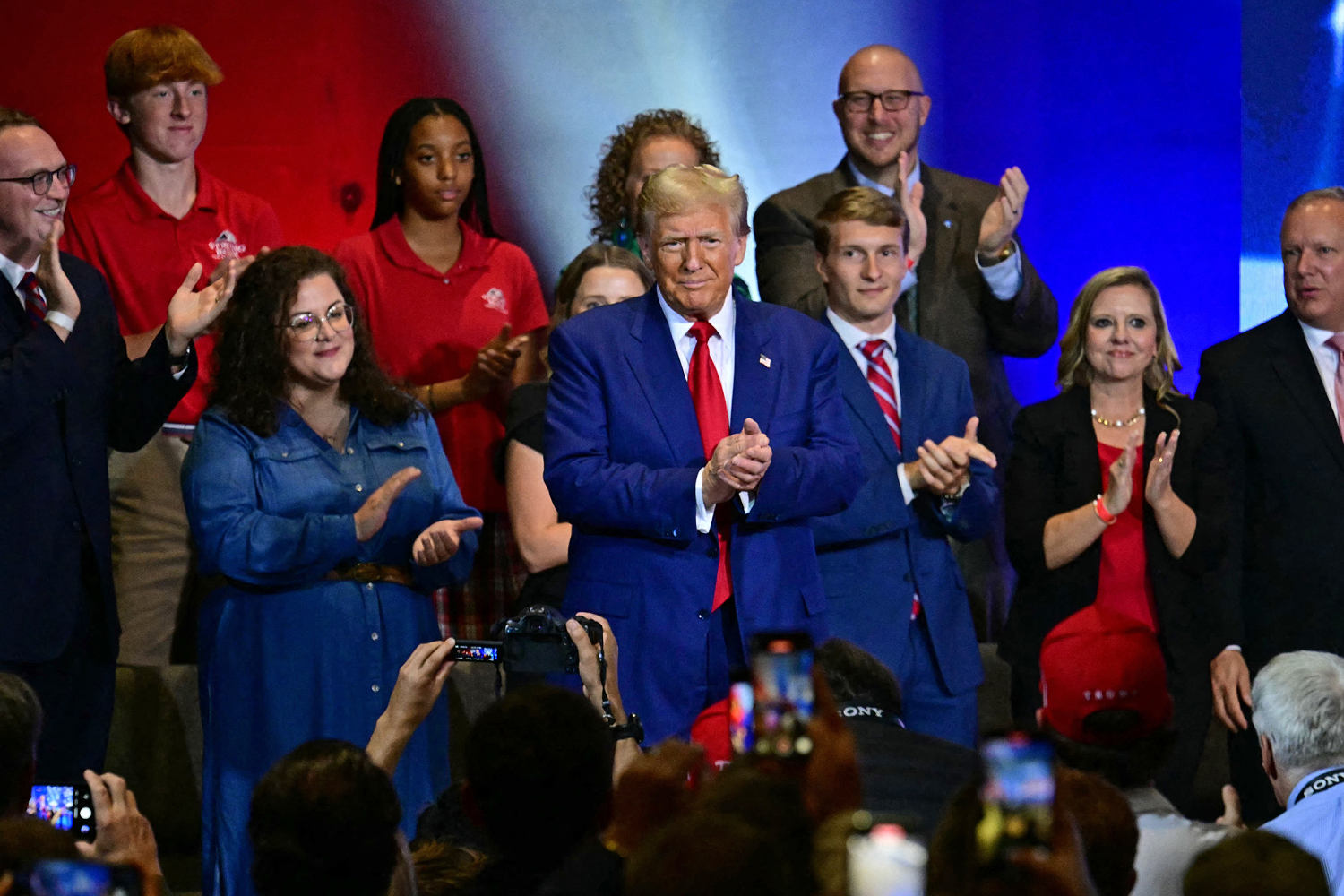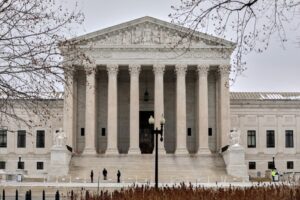Politics
Trump’s religious facade crumbled at his Georgia church rally

Donald Trump’s “Believers and Ballots Faith Town Hall” in Zebulon, Georgia, on Wednesday was very short on words about believers, ballots or faith. In the closing days of past campaigns, the Republican Party and its Christian right allies made strong appeals to these voters to get out to the polls in huge numbers to save “Christian” America and “biblical” values. On Wednesday, though, Trump’s perfunctory appearance at Christ Chapel Church in the battleground state punted on an opportunity to make such a plea inside a church. The abbreviated, uncomfortable charade showed how Trump, in his third presidential run, has dispensed with the GOP’s farcical claim to being the party of religious Americans, relying instead on his status as a messiah figure to mobilize his loyal base of white evangelical voters.
One of the town hall participants asked Trump about a survey released earlier this month by the evangelical pollster George Barna and Arizona Christian University, claiming that 32 million regular churchgoers may not vote this November (this is not the first time Barna has made such dire pronouncements, including in 2016, when Trump won). Asked to “share a final message to those Christians to encourage them to go to the polls,” Trump could not even bring himself to offer such a message. He did not acknowledge or thank the voters who helped propel him to the White House eight years ago and stood by him throughout his scandalous presidency and insurrection. Instead, he said, “Christians are not tremendous voters,” and then rambled for nearly three minutes on themes of religious persecution by “not nice” and “stupid” people, guns and COVID restrictions, without completing coherent sentences or thoughts.
Trump has drifted away from Christian right leaders who, unlike Kirk, have proven track records in organizing and energizing evangelical voters.
That lack of concern may be due to his evident decline and increasing indiscipline, or the hubris arising from being persistently told he is God’s anointed candidate. It may also stem from his embrace of a new evangelical leader, far-right campus troll and election denier Charlie Kirk. To the chagrin of many Republicans, Kirk’s organization, Turning Point Action, is performing GOTV functions for the Trump campaign, part of a new, untested Trump strategy for mobilizing irregular voters that is worrying veteran Republican strategists. Turning Point hosted a campaign event in Duluth, Georgia, directly after the one in Zebulon on Wednesday, but it was not billed as an event connected to Believers and Ballots, supposedly the Trump campaign’s own religious outreach. At the Turning Point event, according to The Associated Press, Kirk claimed Democrats “stand for everything God hates” and called the election “a spiritual battle.”But Trump seems to have little energy for any battle, spiritual or otherwise, and has drifted away from Christian right leaders who, unlike Kirk, have proven track records in organizing and energizing evangelical voters. He created a rift when, at the Republican National Convention, the party took control of the platform drafting process and sidelined influential activists like Family Research Council president Tony Perkins and Chad Connelly, a longtime evangelical outreach operative. Perkins, in particular, protested loudly that the platform “watered down” the party’s anti-abortion stance.
But Trump (who reportedly edited the platform personally) ended up getting his way. The resulting document gaslit the public, facilitating Trump’s claim that he had “softened” his stance on abortion even as he boasted repeatedly of his central role in overturning Roe v. Wade.
Around that same time, Kirk and fellow far-right provocateur Jack Posobiec proved their fealty by promoting the idea that God saved Trump in the assassination attempt this past July, days before the Republican National Convention. Posobiec and Kirk both claimed that, because the bullets were fired at 6:11 p.m., Trump must have been protected by the armor of God described in Ephesians 6:11. The meme traveled like wildfire in right-wing circles, Trump’s status as a victorious savior shielded by divine protection became a talking point at the Republican convention and Trump now regularly appears at Turning Points events. But neither Trump nor his running mate, Sen. JD Vance, appeared at Pray Vote Stand, the annual political conference formerly known as the Values Voter Summit, hosted by Perkins’ FRC and in the past a key campaign stop for Republican hopefuls.
If evangelicals show up on Election Day, it won’t be the old “Christian values” that bring them to the polls.
Whether this will matter in the end for Trump’s evangelical turnout remains to be seen. Surveys from both the Pew Research Center and the Public Religion Research Institute this fall show Trump roughly matching his previous share of the white evangelical vote, at 82% and 81%, respectively. But Wednesday’s event proved that if evangelicals show up on Election Day, it won’t be the old “Christian values” that bring them to the polls.Amid GOP panic over losing women and swing voters who support abortion rights, Trump appears adrift in his evangelical mobilization, meandering through disconnected verbal thickets of insults and boasts, unable to focus on issues or hammer home talking points. If he loses the election, recriminations will fly among Republicans and Christian right powerbrokers about whether he did enough to get these voters to the polls. If he wins, though, his second presidency will be even more driven by spiritual warfare, toxic social media trolls, and Bible-fueled conspiracy theories than his first.
Politics
White House wants a reprieve in spy-powers fight that is splitting the GOP

The Trump administration is pushing for a clean extension of Section 702 surveillance authority ahead of an April deadline…
Read More
Politics
White House wants a reprieve in spy-powers fight that is splitting the GOP
The Trump administration is pushing for a clean extension of Section 702 surveillance authority ahead of an April deadline…
Read More
-

 The Dictatorship1 year ago
The Dictatorship1 year agoLuigi Mangione acknowledges public support in first official statement since arrest
-

 Politics1 year ago
Politics1 year agoFormer ‘Squad’ members launching ‘Bowman and Bush’ YouTube show
-

 The Dictatorship5 months ago
The Dictatorship5 months agoMike Johnson sums up the GOP’s arrogant position on military occupation with two words
-

 Politics1 year ago
Politics1 year agoBlue Light News’s Editorial Director Ryan Hutchins speaks at Blue Light News’s 2025 Governors Summit
-

 Politics1 year ago
Politics1 year agoFormer Kentucky AG Daniel Cameron launches Senate bid
-

 The Dictatorship1 year ago
The Dictatorship1 year agoPete Hegseth’s tenure at the Pentagon goes from bad to worse
-
Uncategorized1 year ago
Bob Good to step down as Freedom Caucus chair this week
-

 Politics10 months ago
Politics10 months agoDemocrat challenging Joni Ernst: I want to ‘tear down’ party, ‘build it back up’






